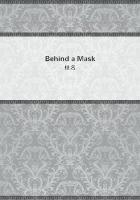But what was it, this liberalism, as Dr. Newman saw it, and as it really broke the Oxford movement? It was the great middle-class liberalism, which had for the cardinal points of its belief the Reform Bill of 1832, and local self-government, in politics; in the social sphere, free-trade, unrestricted competition, and the making of large industrial fortunes; in the religious sphere, the Dissidence of Dissent and the Protestantism of the Protestant religion. I do not say that other and more intelligent forces than this were not opposed to the Oxford movement: but this was the force which really beat it; this was the force which Dr. Newman felt himself fighting with;this was the force which till only the other day seemed to be the paramount force in this country, and to be in possession of the future; this was the force whose achievements fill Mr. Lowe with such inexpressible admiration, and whose rule he was so horror-struck to see threatened. And where is this great force of Philistinism now? It is thrust into the second rank, it is become a power of yesterday, it has lost the future. A new power has suddenly appeared, a power which it is impossible yet to judge fully, but which is certainly a wholly different force from middle-class liberalism;different in its cardinal points of belief, different in its tendencies in every sphere. It loves and admires neither the legislation of middle-class Parliaments, nor the local self-government of middle-class vestries, nor the unrestricted competition of middle-class industrialists, nor the dissidence of middle-class Dissent and the Protestantism of middle-class Protestant religion. I am not now praising this new force, or saying that its own ideals are better; all I say is, that they are wholly different. And who will estimate how much the currents of feeling created by Dr. Newman's movements, the keen desire for beauty and sweetness which it nourished, the deep aversion it manifested to the hardness and vulgarity of middle-class liberalism, the strong light it turned on the hideous and grotesque illusions of middle-class Protestantism,--who will estimate how much all these contributed to swell the tide of secret dissatisfaction which has mined the ground under the self-confident liberalism of the last thirty years, and has prepared the way for its sudden collaps 25 In this manner it works to the same end as culture, and there is plenty of work for it yet to do. I have said that the new and more democratic force which is now superseding our old middle-class liberalism cannot yet be rightly judged. It has its main tendencies still to form. We hear promises of its giving us administrative reform, law reform, reform of education, and I know not what; but those promises come rather from its advocates, wishing to make a good plea for it and to justify it for superseding middle-class liberalism, than from clear tendencies which it has itself yet developed. But meanwhile it has plenty of well-intentioned friends against whom culture may with advantage continue to uphold steadily its ideal of human perfection; that this is an inward spiritual activity, having for its characters increased sweetness, increased light, increased life, increased sympathy. Mr. Bright, who has a foot in both worlds, the world of middle-class liberalism and the world of democracy, but who brings most of his ideas from the world of middle-class liberalism in which he was bred, always inclines to inculcate that faith in machinery to which, as we have seen, Englishmen are so prone, and which has been the bane of middle-class liberalism.' He complains with a sorrowful indignation of people who 'appear to have no proper estimate of the value of the franchise;' he leads his disciples to believe,--what the Englishman is always too ready to believe,--that the having a vote, like the having a large family, or a large business, or large muscles, has in itself some edifying and perfecting effect upon human nature. Or else he cries out to the democracy,--'the men,' as he calls them, 'upon whose shoulders the greatness of England rests,'--he cries out to them: 'See what you have done! I look over this country and see the cities you have built, the railroads you have made, the manufactures you have produced, the cargoes which freight the ships of the greatest mercantile navy the world has ever seen! I see that you have converted by your labours what was once a wilderness, these islands, into a fruitful garden; I know that you have created this wealth, and are a nation whose name is a word of power throughout all the world.' Why, this is just the very style of laudation with which Mr. Roebuck or Mr. Lowe debauch the minds of the middle classes, and make such Philistines of them. It is the same fashion of teaching a man to value himself not on what he is, not on his progress in sweetness and light, but on the number of the railroads he has constructed, or the bigness of the tabernacle he has built. Only the middle classes are told they have done it all with their energy, self-reliance, and capital, and the democracy are told they have done it all with their hands and sinews. But teaching the democracy to put its trust in achievements of this kind is merely training them to be Philistines to take the place of the Philistines whom they are superseding;and they too, like the middle class, will be encouraged to sit down at the banquet of the future without having on a wedding garment, and nothing excellent can then come from them. Those who know their besetting faults, those who have watched them and listened to them, or those who will read the instructive account recently given of them by one of themselves, the Journeyman Engineer, will agree that the idea which culture sets before us of perfection,--an increased spiritual activity, having for its characters increased sweetness, increased light, increased life, increased sympathy,--is an idea which the new democracy needs far more than the idea of the blessedness of the franchise, or the wonderfulness of its own industrial performances.
同类推荐
热门推荐
娇宠恋人,男神领我回家
佳琦永远不会忘记,当她孤独地躺在冰冷的地面上挣扎时,那个穿着洁白衬衣的男孩焦急呼唤她的声音。是他急促的呼唤声让她保存着最后一点意识,是他一路护送她到医院!佳琦还记得自己如同抓救命稻草般拽着男孩的手,男孩没有挣脱,他一直在旁边轻声安慰她,“坚强点,你一定会没事的!我会陪着你……”死里逃生的佳琦丢失了一些记忆,出院后,她开始不停地做梦……两年,无数次泪流满面地从梦中惊醒!直到,那个有着和梦中同样嗓音的男生来到她面前……情节虚构,请勿模仿--情节虚构,请勿模仿蜜吻99次:老公大人求放过
宋楚若洗完澡之后拿出了平板在兴致勃勃的看电视,凌宇晟凑过来,宋楚若推开他,说:“你走开,我要看电视!”“看我就够了!”刚说完,宋楚若就被某人推倒,拆骨入腹了。事后,宋楚若生气的指着他:“我要跟你谈谈什么叫做节制!”“在我的字典里没有节制,看你还有力气,我们继续吧!”……宋楚若瞪着他,人前衣冠楚楚,可是总是欺负她,她发誓总有一天要翻身农奴把歌唱……















